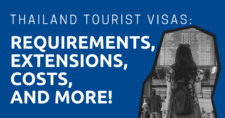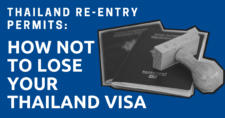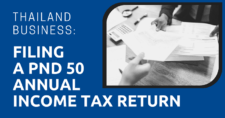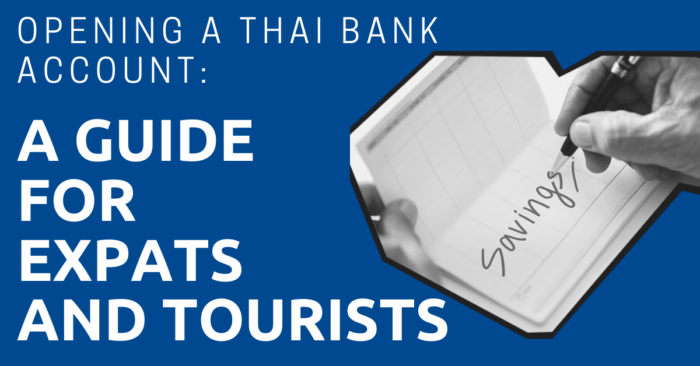
One of the first and most essential things you need to do when you move to Thailand is open a bank account.
Not only will it help you pay for goods and services in the country, but having a Thai bank account makes it easier and cheaper for you to send and receive money both locally and internationally.
By the end of this guide, you’ll find out about the documents and requirements you need to open an account, the best Thai banks for expats, and much more.
If you want to set up your life in Thailand hassle-free and save thousands of dollars, become an ExpatDen Premium member. Once you join, you get instant access to over a hundred exclusive guides on how to get a job, start a business, manage your finances, and plenty more.
Here’s a sample of some of the exclusive finance guides you’d get instant access to:
- How to Choose the Right Bank in Thailand
- How to Get a Thai Credit Card without a Payroll Slip
- How Do Expats in Thailand Manage Their Finances?
- How to Get the Best Exchange Rate in Thailand That’s Better than SuperRich (With Free Delivery, Too)
- and much more…
"*" indicates required fields
Disclaimer: This article may include links to products or services offered by ExpatDen's partners, which give us commissions when you click on them. Although this may influence how they appear in the text, we only recommend solutions that we would use in your situation. Read more in our Advertising Disclosure.
Contents
- Key Takeaways
- What to Consider Before Opening an Account
- Opening a Thai Bank Account
- Opening a Bank Account Without a Thai Work Permit
- The Best Thai Banks for Expats
- Types of Accounts
- Thai Debit Cards
- ATMs in Thailand
- Paying for Goods and Services with Your Thai Bank Account
- Transferring Money into Your Thai Bank Account
- Setting Up Direct Deposit into Your Thai Bank Account
- Deposit Guarantees
- Bank Fees
- Alternatives to a Thai Bank Account
- Bank Operating Hours
- Bank Holidays
- Now, on to You
(And How It’s Costing Them)
Most expats throw money away, get lost in red tape, and miss the local hacks that make life easier and cheaper. ExpatDen Premium gives you the secrets seasoned expats use to save, earn, and thrive beyond the basics, saving you thousands and opening doors you didn’t even know existed.
Here’s what’s inside:
- Housing Hacks: Slash your rent by 40% or more - because the locals are laughing at what you’re paying.
- Banking Mastery: Stop wasting on fees and get top exchange rates. Why give your money away?
- Healthcare for Local Prices: Quality treatment without the expat price tag.
- Visa and Legal Shortcuts: No more bureaucratic nightmares. Get the visa and residency secrets that others pay their lawyer dearly for.
- Deep Discounts: Find the savings locals rely on for groceries, dining, and more.
If you’re serious about making Thailand work for you, join ExpatDen Premium and make Thailand work for you.
Key Takeaways
- The most expat friendly banks in Thailand are: Bangkok Bank, Kasikorn Bank, Siam Commercial Bank, CIMB, and United Overseas Bank.
- It’s often easier to open up a savings account instead of a current account as an expat in Thailand.
- A Thai bank account lets you pay bills, transfer money, and receive your salary if you’re working in Thailand.
- Your Thai bank account is insured for up to 1 million Thai Baht.
- Transferring money into your Thai bank account from overseas is simple and cheap with Wise.
What to Consider Before Opening an Account
While life without surprises would be a tad boring, people prefer not to encounter them with financial matters. So, I’ll cover what you need to know when banking in Thailand.
- Pick your branch wisely: Many bank policies tend to be branch specific. Just because something does or doesn’t work in one branch doesn’t mean it will be that way in another. That can work in your favor if a branch is more lenient than they’re supposed to be. But it’s often frustrating because bank branch managers interpret the rules in a stricter way. Branches tend to be more independent in other ways as well. You can carry out some procedures at the branch where you opened the account. Others can be carried out at all branches. And a select few can be carried out at every branch as long as your ID on file is up to date.
- Bring all your documents: When opening an account, it’s always a good idea to bring every document you have. This includes your passport, your bank book, your certificate of residence, your work permit, or an employment letter showing your eligibility for a work visa. All documents must be original and some banks may even require you to have your passport certified from your Embassy in Thailand. Some banks have issued me credit cards with me showing nothing but a Thai driver’s license, but generally the documents required tend to be more extensive.
- Why empty forms get signed: Nearly every time I visit a Thai bank for something other than a withdrawal, I’m asked to sign a standard form. That apparently gets tedious for many people. The modus operandi for many bank employees is to give the unfilled form to customers, asking them to sign and promising to fill in the details for them later. Of course, you can fill it out yourself and cross out any empty sections.
Opening a Thai Bank Account
If you have the right documents and meet the financial requirements, opening a bank account in Thailand is quite the straightforward process.
Documents
In order to open a bank account in Thailand, you’ll need the following documents:
- Your passport
- Your Thai visa*
- Your Thai work permit
- Certificate of residence
*Most banks won’t let you open an account on a tourist visa. So you’ll need a long-term Thai visa. But even with a long-term Thai visa, it’s getting more difficult to open bank accounts in Thailand. So you may need a business visa and work permit, or you may have to visit another bank branch. More on this later.
You may also need the following additional documents in some cases:
- Thai driving license
- Thai house registration book or lease
- Letter of reference from a reputable Thai person, an embassy, a university, or a similar person or organization in high standing
- Letter from a company saying that you’re getting a work permit
- Documents showing you receive a salary or pension
In the end, what the bank accepts as valid documents depends on the branch teller or manager on duty.
Financial Requirements
The minimum amount required to open a bank account in Thailand varies by bank and account type. Most Thai banks require a minimum deposit of THB500, whereas United Overseas Bank (UOB) requires a THB1,000 deposit for savings accounts.
Foreign currency accounts will require a minimum balance of US$5,000 at most banks in Thailand for non-residents. To avoid bank maintenance fees, you’ll need to maintain a balance in your account.
- Bangkok Bank: Minimum initial deposit of THB500. Minimum balance of THB2,000 for savings accounts if inactive for 12 months.
- Kasikorn Bank: Minimum initial deposit of THB500. Minimum balance of THB2,000 for savings accounts if inactive for 12 months.
- UOB: Minimum initial deposit of THB1,000. Minimum balance of THB5,000 at the end of each month.
The service fee is generally THB50 to 100 per month if you fail to meet the minimum balance requirement.
Opening a Bank Account Without a Thai Work Permit
It’s possible to open a bank account in Thailand without a business visa and work permit, but it’s getting increasingly more difficult, and you need to know the exact bank and branch to go to.
One of ExpatDen’s editors was denied a second bank account at KrungThai Bank even though he already had one account with them for nine years. He opened his original account on a marriage visa in 2014, but KrungThai employees said that they changed their policy somewhere along the way and that he could no longer use that type of visa to open an account.
If this happens to you, there are some options available:
- Switch to a new bank: In Thailand, each bank branch has its own specific rules. If one denies your application, others may accept it.
- Become an ExpatDen Premium member: You’ll get instant access to the exact Thai bank branches that will let you open an account. You’ll also find out where to get a Thai credit card with only a THB15,000 monthly salary. Plus, you get access to over a hundred other exclusive guides.
- Thailand Privilege Card: If you have one of the Thailand Privilege Cards, you can walk into any Bangkok Bank or Kasikorn Bank and open a savings or foreign currency account.
The Best Thai Banks for Expats
The traditional choices for expats arriving in Thailand are Bangkok Bank and Kasikorn Bank. Both UOB and CIMB also have a reputation for being more lenient with expats and offer more benefits.
However, they are not the only available options. Depending on your specific needs and immigration status, different banks might be a better pick. Let’s look at each of them in more detail.
Bangkok Bank
With 18 million accounts, Bangkok Bank is not only Thailand’s largest bank but also the most expat-friendly one. In terms of specific branches, Bangkok Bank’s main office on Silom Road is frequently mentioned as the best one to visit.
In addition, Bangkok Bank probably has the best exchange rate of all Thai banks when it comes to international money transfers.
Read more: Thai Baht: How to Get the Absolute Best Exchange Rates
Kasikorn Bank
Kasikorn Bank is one of the only Thai banks that do not require a minimum deposit to open an account. Because it is one of the most popular banks in Thailand, the queue is often long at their banks and ATMs.

Its branches at Icon Siam, Central Embassy, and on Sukhumvit 33 appear to have the highest customer service ratings. If all your documents are approved, you’ll receive a bank book and ATM card on the spot.
And I found Kasikorn Bank to be one of the easier ones to work with when it comes to credit cards.
Siam Commercial Bank
Siam Commercial Bank (SCB) is a well-established bank and favored among Thais because of its user-friendly banking app.
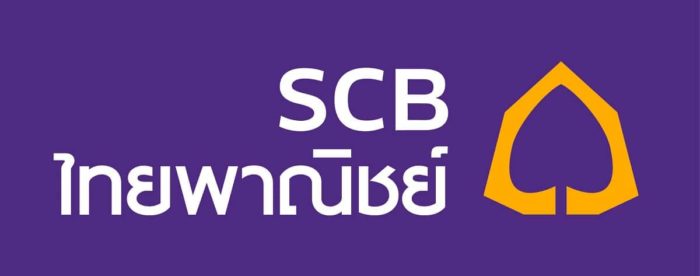
It also has a strong reputation in Thailand’s investment banking industry and has designated SCB investment centers around Bangkok. If you’re considering opening a stock brokerage account in Thailand, SCB is a good place to start.
Some have said that the brokerage account platform feels a bit outdated compared to other countries, but it gets the job done and transactions are cheaper than in Germany.
One downside is that SCB charges a markup of 5 percent on the exchange rate when withdrawing money from your foreign account from an ATM in Thailand.
CIMB
CIMB is a Malaysian bank and one of the largest in ASEAN. Many people have reported having a better chance of opening a bank account at a CIMB branch on a tourist visa.
Based on online reviews, they’ve been increasingly getting more positive feedback from expats as providing better customer support due to higher English speaking proficiency with their bankers.
CIMB also offers competitive interest rates on savings accounts in Thailand. For savings accounts with a balance less than THB1 million, they offer 0.50 percent and 0.75 percent for accounts over THB1 million. This is double compared to SCB and Kasikorn, which offer 0.25 percent and 0.30 percent respectively for the same conditions.
United Overseas Bank
UOB acquired Citibank’s consumer banking business in Thailand in 2022. It includes retail banking, credit cards, wealth management, and other products and services in Thailand.
Its head office is the UOB Plaza Bangkok, a landmark 30-floor building located on Sukhumvit Road.
But this branch focuses more on their Privilege and Wealth Banking customers and only has a few bank counters on the first floor that cater to basic banking needs such as opening an account or making withdrawals.
Types of Accounts
There are several different accounts available to expats. The easiest one to open is a savings account. For most other account types, you need a Thai work permit. Here is a summary of each account type.
- Savings accounts: Thai savings accounts work similarly to savings accounts elsewhere. They are used to save money and earn interest. Most times, if you don’t have a Thai work permit, you will be able to open only a savings account in Thailand.
- Current accounts: If you have a work permit, you can open a current account. There is not much difference between a current and savings account other than the type of bank book you receive.
- Fixed-term accounts: Fixed-rate accounts let you set aside a chunk of money for a set amount of time and earn a guaranteed amount of interest on it. Aside from testing a fixed-term account with Kasikorn Bank a few years back, I’ve stayed away from these in Thailand. This is partially due to the non-resident rates and me preferring the local stock market as an investment choice.
Thai Debit Cards
When you open a current or a savings account in Thailand, it usually comes with a debit card that you can use for online purchases, buying groceries, filling up your tank, and so on.
But keep in mind that you have to pay anywhere from THB200 to THB500 a year for a debit card fee.
The card works almost anywhere in Thailand, but you’ll have to request the bank to set up international payments so you can use it on websites outside of Thailand, like Amazon.
You can also get a debit card that works while traveling outside of Thailand, this way you can use it to withdraw money or make purchases while on vacation or a business trip.
Given that debit cards are much easier to obtain than credit cards (no work permit required), some people find it’s enough and not worth the hassle of going through a credit card application process.
Read more: Requirements and Benefits: Thai Credit Cards for Foreigners
ATMs in Thailand
ATMs are located everywhere throughout Thailand and are a lot more functional than what you might be used to back home. Thais tend to use ATMs not only to withdraw money but to make bank transfers and pay bills.
I remember when I got my first debit card, I was told that the fee to withdraw money from the ATM of a different bank was “3.” I asked the teller if she meant 3 percent? Nope. It was 3 baht.
Nowadays, fees are much higher but still nowhere near what you pay in other countries. ATM withdrawal fees for using machines from a different bank are in the range of THB15 to THB25. In some cases, though, banks allow three free withdrawals per month for customers from other banks.
What’s interesting to note is that you pay a surcharge when withdrawing money in a different province, even if it’s from your own bank. But when withdrawing money from your bank in the same province you opened the account in, it’s free.
Related article: The Complete Guide to ATMs in Thailand
Paying for Goods and Services with Your Thai Bank Account
You can use multiple methods to pay for things in Thailand with your bank account. I cover some of the more popular ways below.
- QR codes: This is the preferred method for many people and businesses in Thailand. When you scan a QR code with your bank app, the money comes right out of your Thai bank account.
- Debit cards: The old-fashioned debit card is still useful in Thailand. You can use it at malls, some convenience stores, and even along highways to pay for tolls. When you pay for something with a debit card, the money is deducted right from your account. Some businesses no longer accept debit cards, however, because of the bank fees involved.
- Bank transfers: Similar to QR codes, paying by bank transfer is done right through your bank app. Just select the bank name, type in the account number of the person or business you want to pay, and enter the amount. The transaction happens instantly. This method is convenient to pay for taxis, especially if the driver doesn’t have a QR code to scan but does have a bank account number.
- E-wallets: TrueMoney and Rabbit Line Pay are two popular e-wallets in Thailand. But opening a TrueMoney account is hard for expats due to the list of requirements such as a non-immigrant visa, work permit, Thai driver’s license, and Thai house registration. Rabbit Line Pay is easier to register for, and you can sign up for an account via the Line app. Because QR codes and bank apps are so readily available nowadays, it’s probably not worth opening either of these accounts.
Transferring Money into Your Thai Bank Account
Once you open a Thai bank account, you have to find a way to transfer money into it. You can do that by either having your monthly salary deposited into your account (if you work legally in Thailand) or adding money from another account.
I’ll cover how to go about setting up direct deposit in the next section. But for now, here’s how to transfer money into your account from a bank overseas and one within Thailand.
- From an international bank account: After you open a bank account in Thailand, you can make international money transfers right away. We recommend using Wise, as it offers mid-market exchange rates, low transfer fees, and instant international transfers.
- From another Thai bank account: You can also transfer money from a bank account into your Thai bank account. All you have to do is give the sender your bank name and account number, and he can transfer the money directly over his banking app.
Related articles:
- How to Send Money to Thailand: The Fast, Cheap, Reliable Way
- Is Wise the Best Way to Send Money to Thailand?
Setting Up Direct Deposit into Your Thai Bank Account
There are primarily two cases where you’d need to set up direct deposit payments into your Thai bank account — when collecting a pension from overseas and when working in Thailand.
- When collecting a pension from overseas: Get in touch with your government agency back home that is responsible for paying your pension. Ask for a direct deposit form. Fill out your name and address in Thailand, your Thai bank’s name, address, routing number, and account number. Submit the form to the government agency.
- When working in Thailand: When you begin working in Thailand, your employer tells you which bank you need to open an account with. After that, your employer transfers your salary to your bank account every month.
Deposit Guarantees
In general, your accounts are protected for up to 1 million Thai Baht under the Thai government’s Deposit Protection Agency Act revision of 11 August 2021. But this act does not protect your foreign currency accounts.
Bank Fees
Besides meeting the minimum deposit requirements, you don’t have to pay any bank fees to open a savings account in Thailand. But you will have to pay some fees when preparing the required documents to open an account.
- Official letters: Some banks now require a letter from your embassy validating your passport. This can cost around THB1,500.
- Debit cards: If you want a debit card, you have to pay an initial fee of THB100 to THB300 for the card, plus an annual fee of THB200 to THB500.
- Official bank copies: If you have a retirement, marriage, or dependent visa, you’ll need an official bank letter showing how much money you have in your account every year. The fee for this letter is usually THB150.
- Other fees: All banks also have common fees, such as account cancellation fees, card replacement fees, and annual fees. This information is included in the terms and conditions when opening an account, or you can ask the bank teller to explain this to you before registering.
Alternatives to a Thai Bank Account
You can possibly get by without a Thai bank account. It won’t be easy or cheaper, but there are some alternatives.
- International no-ATM fee accounts: Both Charles Schwab and TD Bank offer free international ATM withdrawals with their accounts. If you withdraw money from your overseas bank account from an ATM in Thailand and are charged for it, you will be reimbursed at the end of each month. Keep in mind, though, that you won’t be getting mid-market exchange rates. That is, Charles Schwab and TD Bank take a small percentage of the exchange rate for the international withdrawal.
- Wise borderless account: Wise offers a multi-currency account that you can use in Thailand like a bank account, and it even gives you a debit card. But keep in mind that you will be charged an exchange rate fee every time you use the card. The fee depends on the currency you’re transferring into Thai Baht.
Bank Operating Hours
Thailand bank operating hours differ between branches.
- Outside of department stores or office buildings: Operating hours are from 8:30 AM until 3:30 PM.
- Inside department stores or office buildings: Operating hours vary. Some banks open at 8:30 AM and others may not open until 11:00 AM. Closing hours range from 6:00 PM to 8:00 PM.
The best way to check a bank operating hours is to use Google Maps. Type the name of the bank in your area, click on it, and you’ll see the operating hours of that branch listed in the Overview section.
Bank Holidays
Bank holidays in Thailand may or may not occur on the same day as public holidays in the country.
Usually, for New Year’s, Songkran, and the king’s birthday, banks are closed. But banks remain open for Royal Ploughing Day or Buddhist Lent.
The best way to check bank holidays is on the Bank of Thailand’s website. In fact, the Bank of Thailand is responsible for assigning bank holidays in the country. The website publishes bank holidays in December of each year.
Now, on to You
Fortunately for expats, opening a bank account in Thailand is relatively simple, and there are many banking choices available as long as you have the right documents and meet the financial requirements.
Banks in Thailand have also widely adopted banking apps, making it easier to transfer money and pay for goods and services both inside and outside the country.
If you can open a bank account in Thailand, do it now. It helps you live in Thailand much more convenient.


